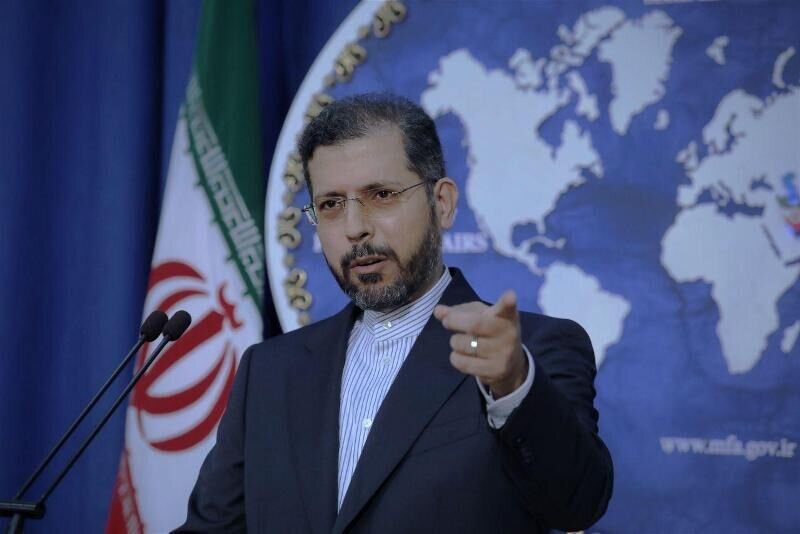Iran flatly rejects statement by Persian Gulf Arab leaders as 'unconstructive’

TEHRAN - Iranian Foreign Ministry spokesman Saeed Khatibzadeh late on Wednesday strongly condemned an anti-Tehran communiqué issued at the end of the Persian Gulf Cooperation Council summit, stressing the Islamic Republic will allow no meddling in its internal affairs, including its peaceful nuclear program.
The group’s leaders, who had gathered for an annual summit in Riyadh on Tuesday, repeated claims concerning the Islamic Republic's nuclear energy work, defensive missile program, and regional clout.
The claims were made as Iran and other remaining parties to the nuclear deal --JCPOA – along with the U.S. are meeting in Vienna to craft a strategy to lift anti-Iran sanctions and ending alleged concerns about Iran’s nuclear activities.
According to Press TV, Khatibzadeh roundly rejected the allegations, considering them to be "continuation of the unconstructive and wrong attitude that is held by some of the Council's members."
He regretted that the body sustains its anti-Iran stance, despite recent diplomatic measures by the Islamic Republic that have been aimed at resolution of standing differences between Tehran and some of the council’s members.
The spokesman denounced some members for "hiding behind" the body to broadcast their anti-Iran views "in its name."
Khatibzadeh reminded those same countries of their own regional mistakes, including their continuation of war on Yemen and opening the door for the Zionist regime of Israel's entrenchment in the region.
“Unfortunately, the continuation of war in Yemen,… and entry of destructive entity of the Zionist regime have endangered the security and stability of the region, and the Islamic Republic has announced has declared its concerns in this regard,” the spokesman lamented.
Khatibzadeh warned that "the Islamic Republic does not brook any interference in its peaceful nuclear energy program, its defensive missile program, and the issues that have to do with its military and deterrent defensive policies."
The official, meanwhile, reminded that the Islamic Republic's "principled position" was based on seeking resolution of the regional issues on the basis of "interaction and cooperation" with its neighbors.
Tehran, he added, therefore, welcomes whatever initiative that could help invigorate the regional relations on the basis of international principles and regulations.
The remarks came after Saudi Crown Prince Mohammed bin Salman called for an "effective and serious" approach to Iran's ballistic and nuclear program during the summit also attended by the UAE, Bahrain, Kuwait, Oman and Qatar.
"It is important to have an effective and serious approach to Iran's nuclear and ballistic program," the crown prince told the summit.
This came despite talks between Iran and Saudi Arabia to settle differences.
Iran and Saudi Arabia, two heavyweight countries in the region, have held four rounds of talks since April, including a first meeting in September with the government of new President Ebrahim Raisi.
In an interview with the Financial Times published on October 15, Saudi Foreign Minister Prince Faisal bin Farhan Al Saud described the negotiations as “exploratory” but “cordial.”
“We are serious about the talks,” he said. “For us it’s not that big a shift. We’ve always said we want to find a way to stabilize the region.”
Iran has said Tehran is pleased with how negotiations have proceeded with Saudi Arabia, emphasizing that the two regional players have the capacity to establish “sustainable” ties.
Saudi Arabia unilaterally cut diplomatic ties with Iran in January 2016 after angry protests were held outside its embassy in Tehran in reaction to the execution of a senior Shia cleric.
Leave a Comment